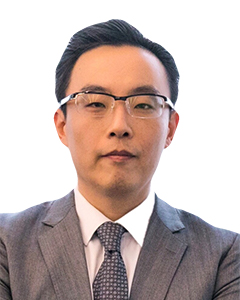The role of securities lawyers in IPOs stems from their ability to reduce the degree of information asymmetry among market participants, i.e., to reflect the core function of the “gatekeeper mechanism”. Since they are “gatekeepers”, diligence, prudence and responsibility are naturally their self-evident obligations, and are also the reasonable expectations of market investors and regulatory agencies.

Partner
Grandway Law Offices
But what is diligence? What are prudence and adequacy? What are “general duty of care” and “professional duty of care”? There is no clear definition or description in the securities law and practice code, and they are seemingly a series of concepts with clear outlines but vague boundaries.
We understand the value of this ambiguity, because we know that once a set of formal standards are established for diligence, it is tantamount to declaring a roadmap to circumvent obligations to the obligors, just as the existence of general clauses such as honesty and credit, public orders and good morals in civil law express an ethical and moral standard with abstract and non-specific rules, which has the function of filling legal loopholes.
Even so, “general provision” is a double-edged sword, because ambiguity is not an end, nor should it serve as an adverse force on the road to reform. The further design of the predictable system, and the various efforts to make exceptions to vague principles, are still the direction for modern rule of law to enhance efficiency and increase fairness. The authors believe that the delineation of a securities lawyer’s duty of due diligence should follow at least three boundaries.
Boundary one: Imputation logic
By reviewing the penalties imposed on securities lawyers by regulators in recent years, it can be summarised that regulators have followed such logic of legal reasoning as: “(defects in due diligence procedures = failure to perform due diligence) + (existence of false records, misleading statements or material omissions) = legal liability”. According to the jurisprudence of tort, the authors will find that the construction of its causal relationship is not so detailed and solid.
There should be a causal relationship between the two objective elements of the penalty, namely “failure to perform duty of diligence” and “existence of false records, misleading statements or major omissions”. However, regulatory agencies often characterise the logical relationship between the two objective elements as a parallel relationship. Lawyers can be penalised as long as the two objective elements are satisfied at the same time, which essentially expands the scope of responsibility.
At the same time, defects in due diligence procedures cannot simply be equated with a failure to perform due diligence. Procedural defects do not necessarily lead to wrong conclusions, even if there is an inevitable connection between them. If the lawyer’s checking procedure with defects and omissions does not correspond to the false records, should relevant responsibilities be pursued?
Boundary two: Professional trust
The Code of Practice requires lawyers to exercise “general duty of care” on matters beyond the scope of the legal profession. However, in the delisting compensation case of Dandong Xintai Electric, the court conveyed a tendency to hold lawyers responsible and liable for the issuer’s financial veracity. Intermediaries bearing joint and several liability is not uncommon in other penalty cases.
The authors believe that non-professionals should have the right to reasonably rely on the conclusions of professionals’ work, which is in line with common sense, and is also common practice in the world. Otherwise, the so-called difference between professionals and non-professionals would be groundless. It is true that financial fraud inevitably involves legal matters such as concealed related parties, forged contracts, tampered-with documents, etc., but the detection of financial fraud depends on the implementation of a series of complicated audit procedures, the establishment of cross-checking relationships between data, and even the financial analysis of the same industry and industrial chains.
If the difference between both financial and legal professions is blurred or confused, it will probably only lower the social evaluation of both professions – the former’s professional achievements will not be respected, and the latter’s professional field will be forced to deform.
Boundary three: Expert responsibility
Lawyers, as legal professionals, usually have industry consensus on the review and judgment of legality, but in individual cases their judgment of legality, especially the judgment of so-called materiality, will differ due to various professional levels, positions and understandings.
In this situation, it is necessary to distinguish between professional responsibility and expert responsibility. Experts are recognised authorities in a certain industry, while professionals are only people engaged in a specific profession. If errors are deemed to have been made in professional judgment, after lawyers have already performed reasonable verification procedures, it is inappropriate to infer that the lawyer has failed to exercise due diligence, as long as such errors may still be subject to disagreement and dispute within the legal profession.
The economics of law summarises the creation of legal responsibility as a game of common choice for members of society. In other words, it is never the maximisation of individual metrics that we must focus on, but the balance between multiple metrics (the balance between marginal benefits and marginal costs). In the background of registration system, the responsibility of securities lawyers should be strengthened, but this strengthening should be precise, and the marginal benefit of supervision should be obvious.
If the liability of securities lawyers is unreasonably increased, to wrong an innocent person will only force the person to leave such field and indulge the bad guys, making them more self-abandoned; or securities lawyers will demand higher returns before they are willing to continue to provide services. In the end, it will still be the stock investors who suffer losses – in which case, it will deviate from the original intention of system design.
Zhu Rui is a partner at Grandway Law Offices. He Shengtong, a paralegal at the firm, also contributed to this article

7/F, Beijing News Plaza
No. 26 Jianguomennei Dajie
Beijing 100005, China
Tel: +86 10 8800 4488 / 6609 0088
Fax: +86 10 6609 0016
E-mail: zhurui@grandwaylaw.com





















